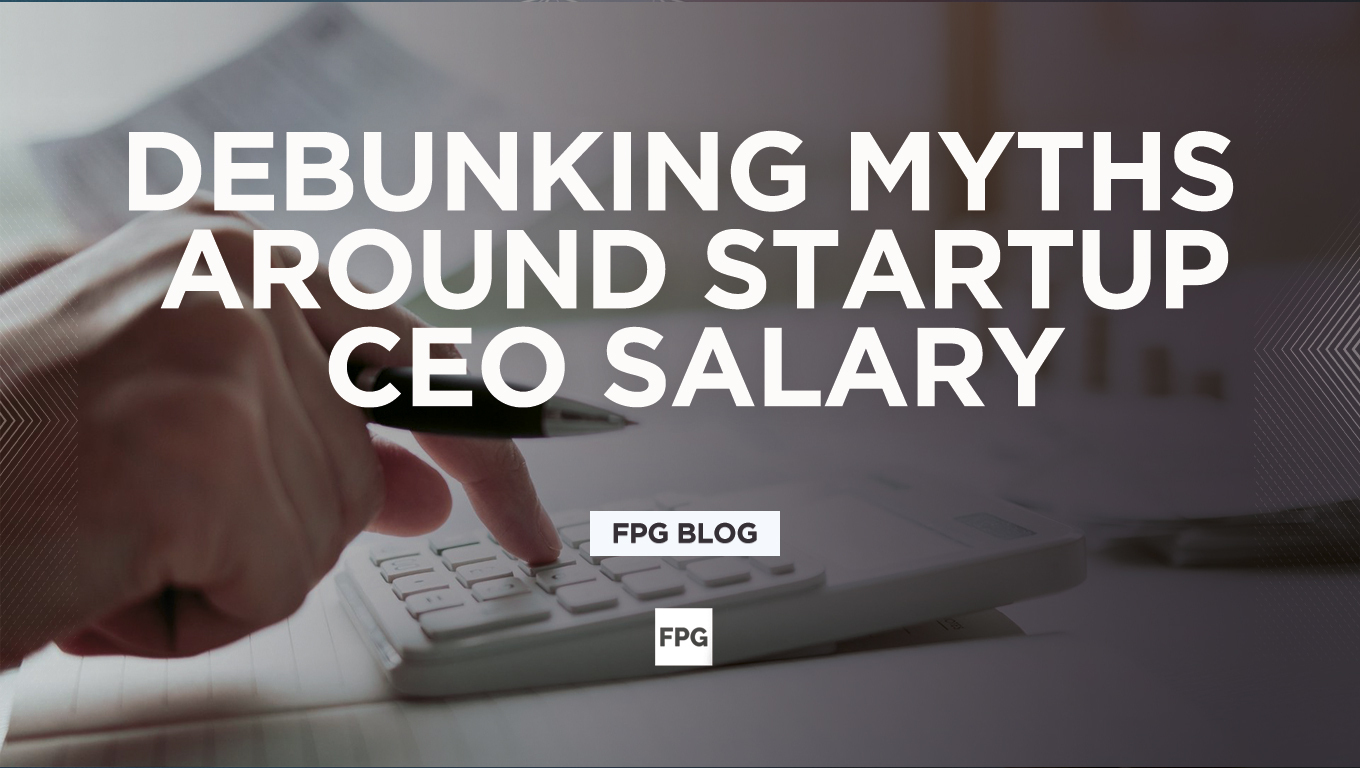In the dynamic and exciting world of startups, CEO compensation structures are far from straightforward. Often shrouded in mystery and misconceptions, the actual salary of a startup CEO can vary greatly based on numerous factors, such as the company’s industry, funding stage, and geographic location. To better comprehend this complex issue, let’s demystify the reality surrounding the salary of startup CEOs and shed light on what a leader in this demanding role can truly expect in terms of remuneration.
- 1. The Influence of Funding Rounds on CEO Salaries
- 2. Understanding CEO Compensation in Early and Late-Stage Startups
- 3. How Equity Compensation Impacts Startup CEO Pay
- 4. The Role of Company Size and Industry in Determining CEO Salary
- 5. Comparing Startup CEO Salaries with Corporate Counterparts
- 6. How Experience and Location Alter Startup CEO Compensation
- 7. Overcoming the Challenges of Setting a Fair Startup CEO Salary
- Conclusion
1. The Influence of Funding Rounds on CEO Salaries
Transitioning to the topic of funding rounds, it’s essential to understand their profound impact on a startup CEO’s salary. Typically, as startups advance through funding rounds, from Seed to Series A, B, and beyond, there’s an upward trend in CEO compensation.
This increase is largely due to the inflow of capital, which enables startups to allocate more resources towards executive salaries. However, it’s not as simple as it sounds. It’s a balancing act where CEOs must weigh their own compensation against the company’s fiscal health and other critical investments.
Therefore, while funding rounds generally translate to higher salaries, it’s essential for those eyeing the CEO role in startups to comprehend the complex interplay of factors.
2. Understanding CEO Compensation in Early and Late-Stage Startups

Moving seamlessly into the comparison between early and late-stage startups, it’s pivotal to note the substantial differences in CEO compensation. In early-stage startups, where cash is often tight, CEOs might draw a lower salary, instead opting for equity as a significant part of their remuneration.
This allows the company to channel more funds towards growth and development. On the flip side, CEOs of late-stage startups, particularly those nearing an IPO or acquisition, generally receive higher salaries. This is largely due to the increased stability and substantial funding these companies typically possess.
Despite the potential for higher income in late-stage startups, it’s crucial for prospective CEOs to understand that the role demands immense responsibility, often requiring a commitment that goes beyond a nine-to-five schedule.
3. How Equity Compensation Impacts Startup CEO Pay
Equity compensation is another vital part of the startup CEO salary equation, acting as a key differentiator from traditional corporate structures. It allows CEOs to own a fraction of the company they are steering, essentially tying their wealth to the success of the startup. In the early stages, where resources are scarce, equity often forms a substantial part of the overall CEO compensation.
This is seen as an investment in the future; if the company thrives, so does the value of the CEO’s shares. As the company matures and funding becomes more available, the compensation structure typically evolves, with a greater emphasis on monetary compensation. Nonetheless, equity remains a significant long-term incentive, potentially multiplying the CEO’s wealth following a successful exit event like an IPO or acquisition.
Clearly, equity compensation adds another layer to the complexity of startup CEO salaries. Aspiring startup CEOs must, therefore, consider not just the immediate cash compensation but also the potential long-term rewards that could come from successful company growth and increased share value.
4. The Role of Company Size and Industry in Determining CEO Salary

Moving on to the role of company size and industry, it’s critical to acknowledge that they also play a decisive role in determining the salary of a startup CEO. Generally, larger startups that have already established their market presence can afford to pay their CEOs a higher salary than smaller, nascent ones.
The industry of the startup also plays a significant role in setting the CEO’s salary. For instance, startups in high-growth industries like technology or healthcare tend to offer more competitive salaries compared to those in more traditional, slower-paced sectors. However, it’s important to remember that there are always exceptions, and many factors come into play in the complex equation that leads to a CEO’s salary.
Finally, the location of the startup also influences the CEO’s compensation. Startups headquartered in cities with a high cost of living, like San Francisco or New York, generally tend to provide higher compensation packages. By understanding these factors, aspiring CEOs can gain a more realistic picture of what to expect in terms of compensation in the exciting yet challenging world of startups.
5. Comparing Startup CEO Salaries with Corporate Counterparts
In contrast to the startup world, the corporate environment presents a different landscape for CEO compensation. Traditional corporations, with their established structures and predictable revenue streams, often offer a more straightforward salary package for CEOs, typically featuring a higher guaranteed salary.
This is unlike startup compensation, which might heavily rely on equity and bonuses tied to performance or company milestones.
However, it’s important to consider that while the immediate cash compensation might be higher in corporations, startup CEOs stand a chance to earn substantial wealth through the appreciation of their equity, particularly if the startup succeeds and goes public or is acquired. The risk and uncertainty involved in startups, then, could potentially lead to a significant payoff.
This divergence in compensation structures highlights the fundamental differences between the two worlds, with corporations offering stability and certainty and startups offering the allure of substantial long-term gains. Thus, aspiring CEOs need to reflect on their risk appetite, long-term career goals, and personal circumstances when deciding between a position at a startup or a corporate entity.
6. How Experience and Location Alter Startup CEO Compensation

Undoubtedly, experience and location considerably influence the compensation of a startup CEO. Firstly, the level of experience a CEO brings to the table is often directly proportional to their salary. Experienced CEOs, especially those with a successful track record of leading startups, are likely to command higher salaries. Their expertise and connections in the industry are seen as invaluable assets that can steer the startup toward success.
Conversely, first-time CEOs or those with less experience may receive a lower salary, reflecting the perceived risk associated with their lack of proven leadership in the startup world.
Furthermore, the startup’s location also impacts the CEO’s compensation. Startups based in major tech hubs, such as Silicon Valley, New York, or Boston, generally offer higher salaries to attract and retain top talent in these competitive markets. However, with the advent of remote work, this geographical factor may be evolving, potentially enabling startups in lower-cost areas to attract high-level talent with the promise of a better work-life balance and lower living costs. Future CEOs must, therefore, consider these factors, their career goals, and personal circumstances when negotiating their compensation in the startup ecosystem.
7. Overcoming the Challenges of Setting a Fair Startup CEO Salary
Determining a fair startup CEO salary presents a myriad of challenges. As a guiding principle, compensation should both reflect the CEO’s value to the company and incentivize its commitment to its success. However, striking this balance is easier said than done. Chiefly, startups operate under financial constraints and uncertainties, which can complicate the process of determining an appropriate salary. Additionally, the CEO’s compensation can also set a benchmark for other employees’ salaries, adding another layer of complexity.
Moreover, market rates for CEO compensation vary widely, depending on factors such as industry, location, and the CEO’s track record. Thus, conducting thorough research and benchmarking against similar startups can be beneficial in arriving at a reasonable figure. Importantly, transparency and clear communication are key when negotiating and setting the CEO’s compensation. All parties involved should have a mutual understanding of the salary structure and how it reflects the company’s financial standing, as well as its future prospects. In essence, setting a fair startup CEO salary requires thoughtful consideration of various factors and should ultimately support the CEO’s motivation to drive the company toward success.

Conclusion
In conclusion, establishing a fair salary for a startup CEO is a multifaceted process that entails a careful evaluation of several key factors. From the startup’s size and industry to the CEO’s experience and geographical location, these components play a crucial role in shaping the final compensation package. Despite the challenges, transparency, thorough research, and clear communication are paramount in navigating these complexities.
Moreover, it’s imperative to remember that startup CEO salaries generally carry a higher level of risk and uncertainty compared to their corporate counterparts. While the immediate financial rewards might be lower, the potential for significant long-term gains through equity can be an attractive proposition.
Lastly, the advent of remote work is challenging traditional norms around location-specific compensation, adding an additional dynamic to consider. Thus, aspiring CEOs must critically assess their risk appetite, their career ambitions, and their personal circumstances when determining the most suitable path for them in the startup landscape. Ultimately, the determination of a startup CEO’s salary should serve to incentivize their commitment, reflect their value to the startup, and align with the company’s strategic goals and financial capability.
Need More Sales? We Can Help You Hire, Train, And Lead Your Salespeople!
Stop feeling the frustration or even disappointment of having to lower your sales forecast or your prices, and instead, start taking the market share that you deserve. Unleash your sales performance with our lead generation, sales recruiting, training, and fractional sales leadership for Homebuilding, B2B, and B2C salespeople and sales leadership. Book a Meeting today!




